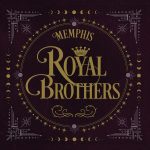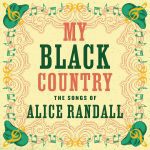He got his start in bluegrass, but movies came first. Tom T. Hall traveled around Kentucky with Hurley Curtis (“Uncle Curt”) and brought movies to the small towns, and the boy would make announcements as the reels spun: “Over at Jones’s Grocery they’ve got bargains galore all over the store; save like you never saved before.”
That’s Hall’s style in a nutshell: a direct, inviting, charming address over a series of vivid images. As a young man, Hall did a stint in the army and then two years in Ronceverte, West Virginia, living above the library, working as a DJ, reading Twain, Hemingway, and Faulkner. Add to this some new journalism, a semi-fictional reporting on everyday life coupled with a reflection on the writing self. He told the stories of songs as much as people and places, as in the conclusion to “Kentucky, Feb. 27, ’71”: “He shook my hand and said, ‘I’m glad I met you, Mr. Hall/But I guess there ain’t a song here after all.'”
Hall reshaped the language of country. He deepened details, complicated narratives, and followed colloquial voices further than they’d ever gone. He was frank, deadly so. “In the magazines I saw the naked women,” he sang on “I Hope It Rains At My Funeral”; “I heard about the drinkin’ in the bars/If my papa could have caught me, he’d have killed me/He said, ‘You might run son, but you won’t get far.'” He peppered his songs with the wisdom found between comedy and pathos, and approached the raw material of his own life as he did the characters he invented: with respect for every nuance in even the smallest truths.
Real: The Tom T. Hall Project is among the most revelatory tribute records to be released this decade, in part for its balance of risk-taking and humble service to Hall’s exceptional gifts. Many of the best stories are drawn from In Search Of A Song and The Rhymer And Other Five And Dimers, both long out of print and deserving reissue. This 17-track collection spans Hall’s career and various styles, his love songs and travelogues, his dialogues and simple odes to coffee or motel rooms.
A successful reading of a Tom T. song isn’t a matter of sticking to country music’s rules, or even to Hall’s blueprints. Joe Henry, for example, marshals “Homecoming” through a techno-folk groove. He samples, weirdly but brilliantly, from the classic intro of Charley Pride’s Live At Panther Hall and layers staccato guitar, drum loops and scratchy moans, like border radio echoes breaking through a Dust Brothers mix. The result is menacing, full of the relentless, lonely drive of the itinerant musician. Henry’s delivery, though, makes the performance riveting. He deadpans every line with knowing resignation, the bemused but deeply empathic voice of a son trying to communicate with his father, across years and experiences neither fully comprehend.
Iris Dement offers an acerbic version of “I Miss A Lot Of Trains”; for the first time I noticed her debt to Dylan. You can hear it in her aggressive style, her bending notes, her free tone. Calexico adds Mexicali horns and a “Secret Agent Man” bass note lick to “Tulsa Telephone Book”; delightfully creepy. The Skeletons all get name-checked by Syd Straw in “Harper Valley P.T.A.”, but they take their revenge in a roots-rock fury. Ralph Stanley II turns in a steady vocal on “The Water Lily”, a song well-suited to straight ahead bluegrass, though his father’s urgent harmony only makes you wish Ralph Sr. had sung lead. Richard Buckner’s solo guitar version of “When Love Is Gone” has effortless, resonant warmth, as does Ron Sexsmith’s delicate embrace of the fairly new Hall song “Ships Go Out.”
With such a range of performers and songs, a few were bound to miss the mark. Joel R.L. Phelps’ version of “Spokane Motel Blues” uncovers little of the story’s spirit — the emotional isolation of the writer’s life, the ultimate absurdity of it. Instead, Phelps belts and whines, mistaking hysteria for passion, trampling the wisdom with angst. And Jonny Polonsky’s shaky vocal on “Old Enough To Want To (Fool Enough To Try)” detracts from the song’s plainspoken tenderness.
Surprisingly, Whiskeytown offers the only nod to Hall’s classic ’70s Mercury sound with producer Jerry Kennedy — the trotting rhythm, pedal steel counterpoint, fiddle, and acoustic guitar foundation. And what is it about Ryan Adams’ delivery of “I Hope It Rains At My Funeral” that nails Hall’s dark, alienated humor, especially when fine singers such as R.B. Morris and Freedy Johnston deliver only competence? Adams sculpts the song, nearly doubles the length (it clocks in at 7:29 here), and transforms the penultimate verse into a repeated chorus, a daring move.
But then he inexplicably changes the key final line. “Well grant me this, let it rain on my funeral/For once I’d like to be the only one that’s left there cryin’,” Adams sings, which really makes no sense. Hall’s original line is the narrative’s clincher: “If I’ve got one wish, I hope it rains at my funeral/For once I’d like to be the only one dry.” The only exit from life’s sad comedy is the grave — and that, in the end, is the funniest thing of all.
Real is bookended by two spare tracks: Johnny Cash alone in his cabin with “I Washed My Face In The Morning Dew”, and Mark Olson & Victoria Williams alone in Joshua Tree with “It Sure Can Get Cold In Des Moines”. Olson and Williams seem to grasp Hall’s hard-to-pinpoint tone, that place between abjection and gaiety: “Life is just like that sometimes,” they harmonize. By peeling back to the essence — the storyteller’s beguiling voice — these performances, like all of the best tracks on Real, refresh and deepen Hall’s own ultimately inimitable originals.




